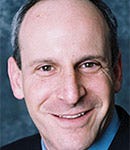Don't count out TescoDon't count out Tesco
Tesco has been in the news a lot recently, with the high profile replacement of their current CEO Phillip Clarke with a Unilever executive Dave Lewis.
Tesco has been in the news a lot recently, with the high profile replacement of their current CEO Phillip Clarke with a Unilever executive Dave Lewis. Lewis will inherit a company searching for direction, with slumping sales in their home U.K. market as well as struggles in most of their foreign outposts. And, of course, there have been the well covered stories of their failed U.S. venture and a similar story in China. Clearly, this is a company with its share of troubles.
At the same time, it was not long ago when many (including myself) considered Tesco to be the best run retailer in the world. And, with sales of over $100 billion (U.S.), this is not a company to take for granted. We keep a close eye on the leading international retailers for a simple reason: trends starting in one country can quickly migrate to another. And U.S. retailers, while still world class, can certainly learn a lot from their global counterparts. In fact, as recent visits to several Tesco stores outside of London will attest to, this is a company with considerable assets and opportunities.
• Its private brands program continues to be among the best in the world and recent revamps to the entry-level Value line, an upgrade to its premium Finest brand and refinements to several key lifestyle brands reveals a company with considerable brand building strengths. An example of a new initiative My Fit Lifestyle shows one such example.

• Their Clubcard program remains world class but requires new innovation to keep up with changing market demands. But, Tesco has great data to work with.
• Visits to their prototype store in Watford shows interesting experimentation with new brands, like the Euphorium Bakery, Giraffe restaurant and Harris & Hoole coffee.

There is much that needs to be fixed at Tesco. It begins with creating a clear sense of direction and regaining market leadership which they have relinquished to others. But there is also a lot to work with.
Do you believe Tesco can turn around its business? And are there lessons worth learning from their recent stumbles abroad? What’s your view?
About the Author
You May Also Like







.webp?width=300&auto=webp&quality=80&disable=upscale)
